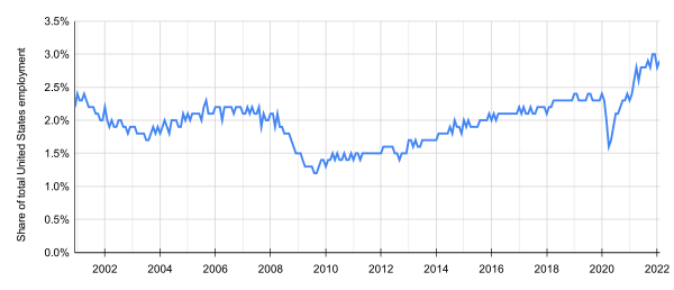- Home
- Ressourcen
- Updates
- The war for talent: How to protect your company from the talent gap and the great resignation?
The war for talent: How to protect your company from the talent gap and the great resignation?
The war for talent rages on. Since the COVID-19 pandemic, companies are not only dealing with a talent gap, or a lack of skills in the workforce, but also with the great resignation, making people rethink their salaries, working conditions, and job satisfaction. The number of people quitting their jobs has rarely been higher. Studies have shown that the manufacturing industry in particular has been hit hard by this job market crisis. How can you protect your company from the increasing influence of the talent gap and the great resignation?

April 27, 2022
geschrieben durch
Frederik Taleman







